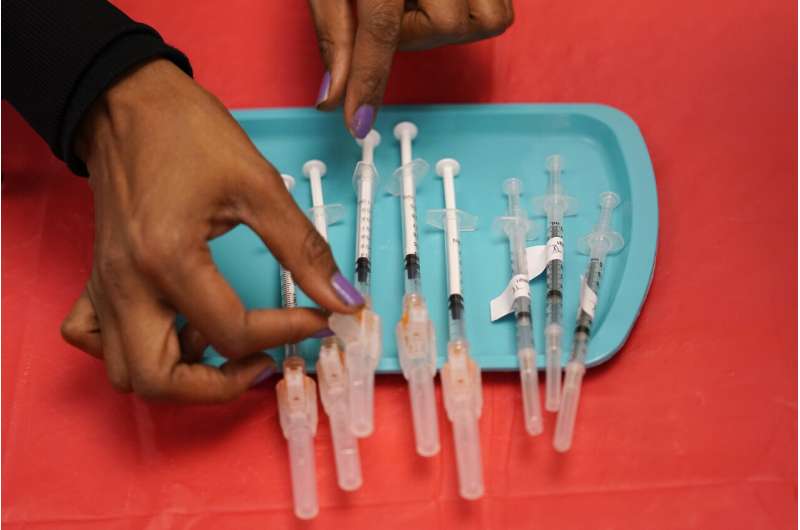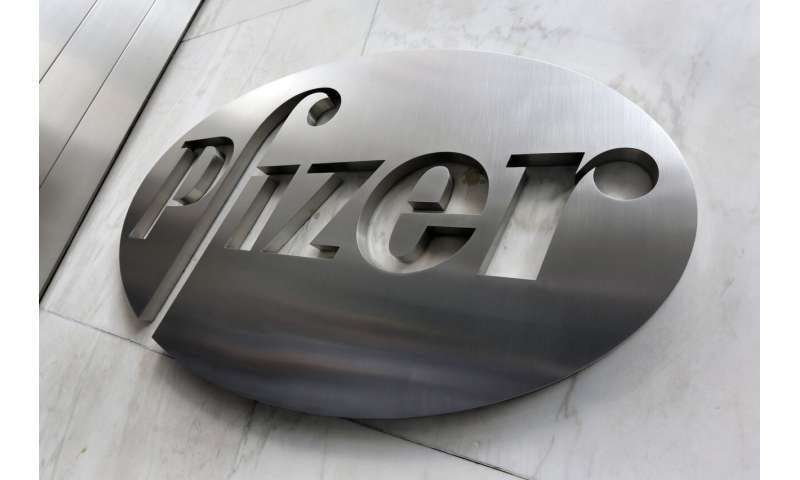

Pfizer, the first company to get U.S. emergency use authorization for a COVID-19 vaccine, swung to a small profit in the fourth-quarter as it started shipping vaccines globally.
The drugmaker expects roughly $15 billion in revenue this year from the vaccine, which won emergency clearance in mid-December from U.S. regulators and continues to rack up approvals across the globe. The two-dose vaccine is about 95% effective and is one of only a few vaccines available to check the global pandemic.
Rising medicine sales helped offset big increases in spending on research and production as the New York company manufactures hundreds of millions of doses of the COVID-19 shot and pushes forward on research gauging its effectiveness in different patient groups, such as teens and people with compromised immune systems.
Pfizer has said that this year it can produce 2 billion doses of the vaccine, developed with its German partner BioNTech, including 200 million doses promised for the U.S. by the end of May.
Evercore ISI analyst Umer Raffat noted that Pfizer’s $15 billion forecast for COVI-19 vaccine revenue this year only covers the doses under contract, which is less than half of the 2 billion doses in planned production.
In a statement, Chief Executive Albert Bourla called Pfizer’s success in developing such a potent vaccine in record-breaking time “the culmination of Pfizer’s decade-long conversion into a pure-play, science and innovation-focused company.”
The company has been remaking itself to focus on high-tech drug development such as gene therapies it’s now testing for rare diseases. In one of the biggest steps, in November Pfizer spun off its Upjohn business, which sells older, mostly off patent drugs such as Viagra, and combined it with Mylan, a top maker of generic pills and the EpiPen auto injector for treating allergic reactions. The new business is called Viatris.
“Following the spinoff of Viatris, will believe Pfizer has a strong growth profile as the innovative pipeline can have a more meaningful impact on growth,” Edward Jones analyst Ashtyn Evans wrote to shareholders. “We believe Pfizer will use its strong cash flow, particularly this year, to invest in internal innovation, acquisitions, and returning cash to shareholders.”

Pfizer said fourth-quarter net income was $594 million, or 10 cents per share. A year earlier, Pfizer posted a loss of $337 million, or 6 cents per share, mainly due to a big writedown on the value of eczema drug Eucrisa.
Excluding one-time items, adjusted earnings came to 42 cents per share, or 4 cents shy of Wall Street projections.
The maker of the world’s top-selling vaccine, Prevnar 13 for preventing pneumonia and related bacterial diseases, reported revenue of $11.68 billion, up 12% from 2019’s fourth quarter. That beat Wall Street forecasts for $11.01 billion.
Initial COVID-19 vaccine sales late in the year came to $154 million.
Quarterly sales were led by $1.4 billion from breast cancer drug Ibrance, $1.3 billion from stroke preventer Eliquis and $1.75 billion from Prevnar 13; all three had sales rise more than 10%. Prevnar 20, an updated version that protects against seven more strains of pneumococcal disease, is currently under review by the U.S. Food and Drug Administration.
Pfizer also posted revenue of $1.5 billion from its business making sterile injectable drugs, and $1.4 billion in revenue from partnerships.
For all of 2020, Pfizer reported net income of $9.6 billion, or $1.71 per share, on revenue of $41.9 billion.
Pfizer said it expects full-year earnings in the range of $3.10 to $3.20 per share, with revenue in the range of $59.4 billion to $61.4 billion.
Source: Read Full Article